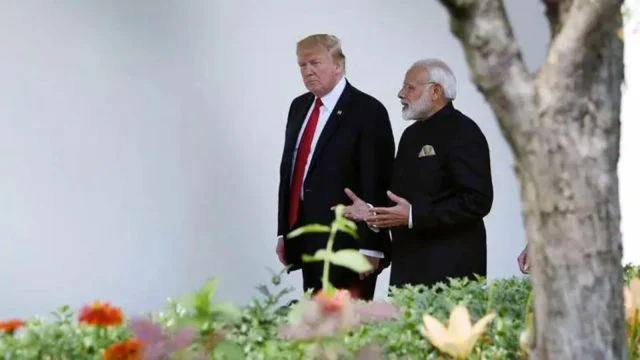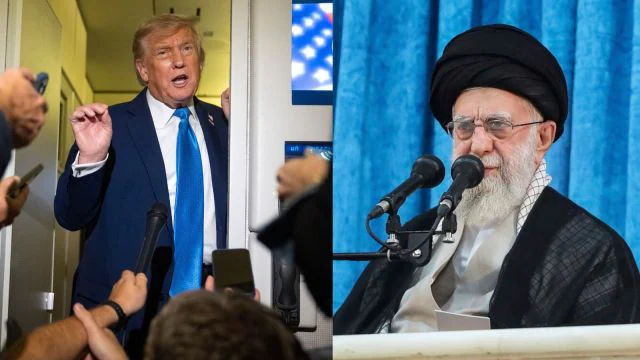In a turning point for India’s foreign and military policy, Prime Minister Modi’s 35-minute phone call with Donald Trump and the unfolding of Operation Sindoor have become a flashpoint in both international diplomacy and domestic politics. Here’s a full breakdown of what transpired, what was said, and why it matters now more than ever.
The Provocation: Attack in Pahalgam & Operation Sindoor
In a swirl of diplomatic and political activity, its roots can be traced back to April 22 when terrorists struck in Pahalgam killing Indian citizens and causing an upsurge in national fever. India thereafter retaliated with operation-driven attacks against Pakistan and Pakistan-occupied Kashmir (PoK) under the cover of Operation Sindoor. The BJP maintained that it was a limited, targeted, and non-escalatory operation. India ensured not to target civilian infrastructure and aimed only for terrorist dens.
The military response was part of what would later be described by the government as India’s “new normal” – a policy doctrine signifying an offensive proclivity for a calibrated and immediate military retaliation against cross-border terrorism. The government emphasised that it will take such action without waiting for any consensus or mediation at a global level.
Modi-Trump Phone Call: How Decision to Cancel Meeting Became a ‘Strategic’ Call
Soon after Modi had met Trump in Japan on the sidelines of the G-20 Summit last June, a proposed bilateral meeting here could have been a watered-down version as Trump returned to his country ahead of schedule on Tuesday. Both leaders exchanged their views for about 35 minutes over phone, which the BJP later said was a landmark moment.
“PM @narendramodi spoke on phone to @POTUS this evening. The two leaders briefed each other about the COVID-19 situation in their respective countries, and exchanged views on various aspects of the pandemic,” Foreign Secretary Vikram Misri tweeted.
The conversation had detailed India’s counter-terror position, its measured approach to targeting terror infrastructure, and the reasons for the pre-emptive action on February 26.
Critical to note, Modi had stated that India’s response was not ‘attack’ in nature, but ‘retaliation’ to avoid immediate threats not to raise the tension.
No Mediation, No Trade Talk: India’s Firm Stance
The BJP was quick to fight back, particularly in light of a statement that Trump made publicly that he had struck a deal between India and Pakistan. The party categorically stated:
- India never accepted mediation by any country, the U.S. included.
- There was no trade deal or trade negotiation.
- Any and all de-escalation was dealt directly between India and Pakistan, using existing military communications and only at Pakistan’s insistence.
This clear enunciation by India was intended to demolish narratives of third-party intervention or backchannel diplomacy.
BJP Accuses Congress of “Derailing the National Narrative”
The BJP left no opportunity to utilise the incident as a political weapon against the Congress. The BJP accused the opposition of trying to sabotage Operation Sindoor and added:
“Right from the spectacular success of Operation Sindoor, Congress has been spreading canards and confusion, lies in order to subvert the national narrative.”
The BJP added that the discussion between Modi and Trump “exposed and embarrassed” the Congress as it was established that India acted unilaterally and did not take mediation offer of any country.
“The Congress’ agenda of politicising national security as well as India’s strategic interests, not only completely factually false but also against the national interest of India,” the party stressed.
Also read, Tragedy at Indrayani: When a 100-year-old ‘Historic’ Bridge Was the Scene of Sorrow
Global Affairs Around the Table: Russia, Ukraine, Israel, Iran and the Indo-Pacific
Operation Sindoor wasn’t the only thing that got discussed during the hard-hitting Modi-Trump tele-call. The two leaders also talked about other urgent global issues:
- Russia-Ukraine War: Both men stressed the need for dialogue and peace in resolving conflicts.
- Israel-Iran Tensions: No less an effort was made concerning avoidance of escalation and support for diplomacy.
- Indo-Pacific Strategy: The two leaders reaffirmed their commitment to the QUAD (Quadrilateral Security Dialogue), underscoring its strengthening as an important strategical tool for ensuring balance in the region.
In an important diplomatic outreach, PM Modi also invited Donald Trump to participate in QUAD next summit which will take place in India. Trump accepted the invitation, saying he looked forward to coming, indicating continuity in Indo-US relations.
Operation Sindoor Continues to This Day
No matter, for maybe the most important piece of information from the call was that Operation Sindoor is very much alive. The BJP said in a press release PM Modi told Trump that India will never tolerate cross-border terrorism and will respond as and when required.
This operational continuity is significant. What it suggests is that India has taken a more proactive approach to security and may keep taking precision strikes as an element of its counter-terrorism doctrine – though without the fanfare of publicity or mass military mobilization.
The Optics and the Diplomacy
From a diplomatic perspective, the phone call was able to broadcast a number of signals:
- India remains committed to the war on terror and self-reliant.
- The US is still an important strategic ally in the region, though not mediators.
- For India, resolving conflicts with neighbors through bilateral channels is a relatively preferred route.
Meantime, Indian government was smart enough to not make its moves look as if it was something overly aggressive or one that would destabilize an already unstable regional environment.
Also read, Narendra Modi Memorable Visit in Cyprus: Diplomacy and Symbolism
Political Messaging and Electoral Undertones
Domestically, the BJP has been unequivocal in its messaging – national security is a non-negotiable and any party that appears to challenge India’s defence steps will be taken to task. The story tries to make PM Modi a decisive leader, firmly in control of the foreign and security apparatus.
This puts the Congress on the backfoot. If they question elements of Operation Sindoor or point out discrepancies in Trump’s pronouncements, they can be accused of being anti-national or out of sync with public mood on national security.
Conclusion
What was originally intended to be a statement that head of government Narendra Modi can “speak to the United States President whenever he wants to” transformed into a 35-minute long phone call and eventually a defining moment in foreign policy. Central to the discussion was Operation Sindoor – not just as a military campaign, but rather as a metaphor for India’s evolving security posture.
In the home front, the BJP seized the opportunity to blister the Congress and consolidate its national security credentials. The call to avert an escalation, echoed internationally, served to underscore that India is a country that cherishes strategic partnerships even as it will not tolerate mediation or intervention in regional disputes.
While Operation Sindoor is believed to be ongoing and India remains martyr to its “new normal” doctrine, this episode highlights a change: from passive diplomacy to proactive assertion. And within that pivot is a new chapter in India’s playbook for foreign policy.
Frequently Asked Questions (FAQs)
- Q1: What is Operation Sindoor?
- Sindoor is a retaliatory operation by India against the Pahalgam terror strike on April 22. It chose to bomb terrorist camps in Pakistan and Pakistan-occupied Kashmir in a calibrated, non-escalatory manner.
- Q2: What was the reason of cancellation of Modi-Trump G7 meeting?
- This planned encounter was derailed by Donald Trump’s early departure from Russia. Instead, the two leaders had a 35-minute phone call.
- Q3: Did India accept US mediation between India and Pakistan?
- No. India had made it very clear that it did not seek or accept any mediation from the United States or any other third country.
- Q4: Is Operation Sindoor still active?
- Yes. PM Modi reportedly told Trump that the operation is active – confirming that India’s new counter-terrorism doctrine has a long life.
- Q5: What else was on the table for discussion between Modi and Trump?
- They spoke on the Israel-Iran stand-off, Russia-Ukraine war, the Indo-Pacific strategy and the role of the QUAD. PM Modi also extended an invitation for the next QUAD summit to Trump in India, which the US President accepted.
Reference
After US President’s claim on ceasefire rejected
Stay updated with all the latest news and insights – News Of US






